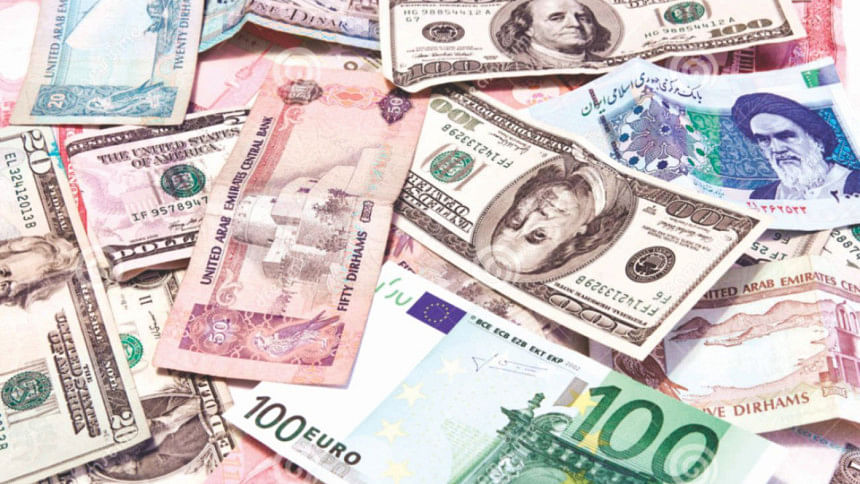Morality is the new medium of exchange

While HSBC in recent years has repeatedly scandalised itself with shocking skeletons tumbling out of its cloistered closet, its chief executive Stuart Gulliver lately said that the bank has sometimes failed to live up to the standards expected of it. It wasn't a pro bono admission of guilt, which came after his conscience had kept him awake, but a clever confession of cautious someone who has been caught in the act. A huge cache of leaked secret files recently revealed that HSBC's Swiss banking arm helped wealthy customers dodge taxes and conceal their assets.
Until one of the bank's former employees blew the whistle on it. Hervé Falciani, responsible for one of the largest leaks of banking data in history, informed the world that money was coming from mafia, drug traffickers, blood diamond and tax evasion. Thanks to him, as a result of his leaks, governments around the world have recovered billions of US dollars in unpaid taxes.
In all fairness, HSBC hasn't been alone in this moral muddle or ethical escapade. Other big names in banking have also joined the fray. The tastefully decorated bank branches now stir up the same anxiety that public buses do in our minds.
Former American president Thomas Jefferson had warned his people that banking institutions would be more dangerous to their liberties than standing armies. He said that banks and corporations growing up around them would deprive the people of all property and their children would one day wake up homeless. But banks are the pillars of finance in any country today. Export, import, credit flow and other financial transactions are conducted through these institutions, which are to economy what arteries are to cardiovascular system.
That tells why no bank CEO has gone to jail after the recent economic meltdown. Instead, the governments desperately pumped taxpayers' money to resuscitate the banks because both are tied to a lockstep dependency. Bank failure could quickly trigger political failure in the consequent chaos if businesses were disrupted, depositors were panicked, investment evaporated and employment lost steam.
The Dallas Federal Reserve assessed that the 2007-09 financial crisis cost the US economy anywhere between US$6 trillion and US$14 trillion. It also said that the cost possibly was twice that amount if untold costs from "special treatment" that too-big-to-fail banks received were counted. In 2011, the British government had estimated that the total cost of avoiding the banking crisis could run up to US$15 billion. But nobody has been sentenced for such monumental mismanagement. Some of it may have been errors in judgment, but a lot of it was maneuvered to make money.
Whereas people go to prison all the time for lesser crimes involving lesser amounts of money, they're arrested for missing mortgages or credit card bills or car payments. Husbands are harassed if they fail or forget to put alimony checks in the mail, fathers for child support. In most cases, the amounts don't exceed a few hundred dollars.
That banks have so far gotten away with murder is proof that they enjoy tremendous clout in every society. These financial institutions have overtaken economies like humongous tree roots overtake entire buildings. And it becomes a difficult problem to correct, because killing the trees can damage the structures of those buildings.
So banks can afford to be abusive since they know economies cannot function without them. They also know they run with the most coveted item of this modern civilisation, which is money. If money is god, banks are houses of worship. But behind their sacred image as safe-keepers of money, their activities are increasingly involving sacrilege.
In the last decade of the last century, Bank of Credit and Commerce International embodied that contradiction. Its employees weren't allowed to smoke, drink, or gamble, and they received a bonus of 3% to be given to charities of their choice. But the same bank was serving Saddam Hussein, Ferdinand Marcos, Manuel Noriega, and the CIA. Before the international regulators shut down the bank, it was accused of bribery, extortion, drug money laundering, financing terrorists, facilitating illegal arms sales, evading taxes, doctoring books, and providing special clients unsecured loans and prostitutes of their choice.
In varying degrees, these vices are practised by many other banks. Why none of these banks has been shut down is a million dollar question. Perhaps morality, not money, is the new medium of exchange.
The writer is Editor, First News and an opinion writer in The Daily Star. Email: [email protected]
(The column could not be carried last Friday for unavoidable reasons. We apologise for it.)

 For all latest news, follow The Daily Star's Google News channel.
For all latest news, follow The Daily Star's Google News channel. 



Comments